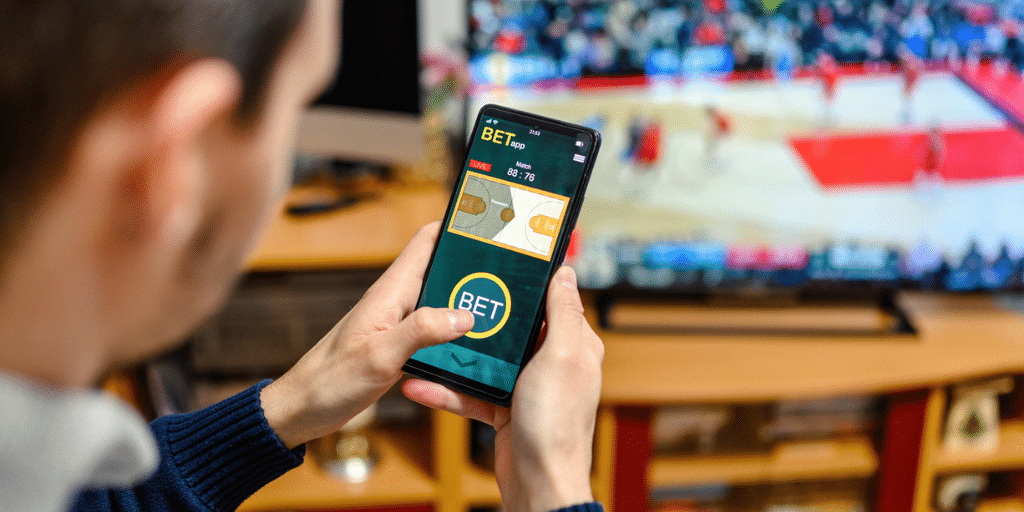THE HIDDEN BRACKET: The Impact of
Gambling During March Madness on Children
As March Madness captures the attention of countless basketball fans, the excitement of brackets, betting pools, and game predictions becomes almost inescapable. Amidst the thrill, an often-overlooked consequence is the impact that gambling, particularly during such high-profile sports events, can have on children in the home. Parental gambling, even when seen as harmless fun, can serve as an unhealthy model for children, influencing their understanding and behavior towards gambling from a young age. This blog post delves into these effects and offers guidance on fostering a healthier environment during the tournament season.
The Impact on Children
Children are keen observers, absorbing behaviors and attitudes from their parents and other significant adults. When children witness family members engaging in gambling, especially with intensity during events like March Madness, they receive subtle messages about risk-taking, the value of money, and how emotions are managed in relation to winning or losing.
- Normalization of Gambling: Regular exposure to gambling activities can normalize the behavior for children, leading them to believe that gambling is a typical, risk-free way to have fun, be liked and popular, or earn money.
- Misunderstanding of Money and Value: Children may develop a skewed understanding of money management and the concept of earning versus chance. This can impact their financial literacy and attitudes toward money in the long run.
- Emotional and Behavioral Effects: The ups and downs of gambling, especially visible during the emotional rollercoaster of March Madness, can teach children that emotional well-being is closely tied to the outcomes of bets and “externally motivated.” This might influence their approach to dealing with losses and successes in life.
- Encounter Maltreatment &/or Abuse: There is a higher risk of childhood maltreatment, neglect, physical discipline and violence related to problem gambling in the household. The intensity of the gambling can distract, frustrate, and/or exasperate adults – both the problem gambler and the non-gambling partner – and significantly affect quality care and healthy engagement with the children in their lives.
- Risk of Developing Gambling Problems: Research indicates that children who are exposed to gambling in their family are more likely to develop gambling problems in adolescence or adulthood.
Unhealthy Modeling of Parental Gambling
Parents are the primary role models for their children. When parents engage in gambling, they inadvertently set an example, potentially instilling the idea that gambling is an acceptable coping mechanism for stress or a viable way to achieve financial success. This modeling can lead to the development of unhealthy gambling habits as children grow, especially if they see gambling as a means to gain social approval or connect with family members.
Fostering a Healthier Environment
- Mindful Participation: If you choose to participate in March Madness betting, be mindful of the messages you’re sending to children. Consider setting boundaries around your gambling activities and avoid involving children in betting practices. Showing children how to gamble is not a positive social norm!
- Open Conversations: Use March Madness as an opportunity to have open conversations with your children about gambling, including the risks involved, how you limit your involvement with a plan before partaking, and the importance of responsible behavior.
- Promote Healthy Alternatives: Encourage children to engage in healthy alternatives to gambling, such as playing sports, family board games, or participating in non-gambling related March Madness activities like prediction games based on skills, and the value of working together as a sports team, that don’t involve money.
- Model Responsible Behavior: Show children healthy ways to deal with stress and disappointment, emphasizing effort and participation over winning or losing money. Teach children that watching and rooting for sports teams can be a fun activity, but each child and family is far more valuable than any sports game or event.
- Seek Assistance for Problem Gambling: Should problem gambling negatively affect a person’s life and family welfare, it is time to reach out for assistance. The National Problem Gambling Helpline – 1-800-GAMBLER – serves as the one-stop hub to connect people with local resources, and provides translation services in over 240 languages. It is available to call or text, 24/7/365. Support is available for the problem gambler and/or the family and friends impacted by the related behaviors.
While March Madness is a time of excitement and entertainment, it’s important to be aware of the significant, negative impact that gambling can have on children. By being mindful of the messages, we send and fostering an environment where healthy behaviors are modeled, parents can help ensure that their enjoyment of the tournament doesn’t inadvertently encourage unhealthy gambling habits in their children. Remember, the most valuable bracket we can fill out is one that champions healthy, informed choices for our families.
